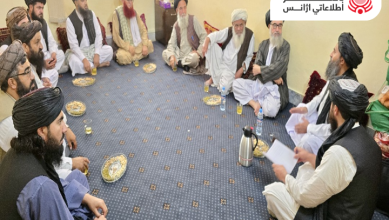
Sunday, December 22, 2019
Kabul (BNA) The Lower House of Parliament (Wolesi Jirga) on its Saturday general session invalidated him Child Rights Protection Law and asked for further legal review of the draft.
On December 9 of the ongoing year, the Wolesi Jirga approved a legislative decree on the draft child rights protection law but some lawmakers opposed the article three of the law and said the quorum was incomplete for the vote.
The article three defines child who is below 18 years of age. However, opponents of the article say the article is in conflict with Islamic rules and constitution of the country.
Following chaos over the Child Rights Protection Law, the lower house tasked a team chaired by first deputy speaker Amir Khan Yar to check whether there was enough quorum on the day of voting on the law or not.
Abdullah Baig, a lawmaker form Takhar province, provided information about the team’s findings to yesterday’s session and said the quorum was incomplete on the day of voting. Baig said 126 lawmakers were needed to decide about legislative matters while there were only 102 lawmakers present on the day of voting on the Child Rights Protection Law. He said the law was invalid due to lack of quorum.
Amir Khan Yar, first deputy speaker, who chaired Saturday’s session, also said that internal duties of the house and law were violated on the day of voting and the Child Rights Protection Law was invalid. He said the law should be legally reviewed and then added to the agenda of the lower house for decision.
The Child Rights Protection Law was the key debate among lawmakers in last four years but could not be approved due to differences over the article 3 of the law.
The lower house also invalidated the law on regulating local councils. Ghulam Faroq Majroh, a lawmaker from Herat province, said that the law was approved last Wednesday despite some disagreements over some of its articles. He said some parts of the law were in conflict with the Constitution as local councils and provincial councils were given the authority of supervision in the law.




